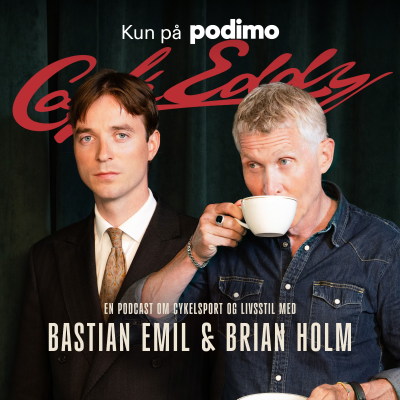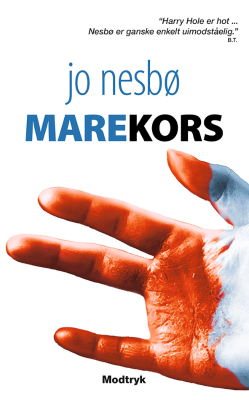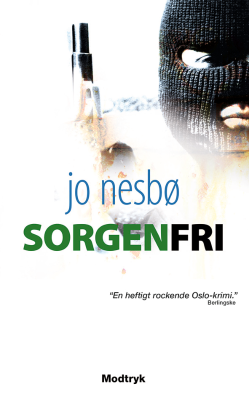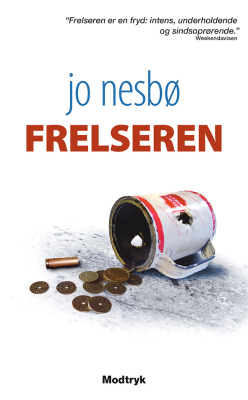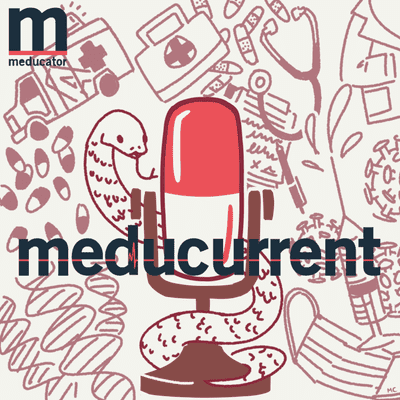
MeduCurrent
engelsk
Videnskab & teknologi
Prøv gratis i 14 dage
99 kr. / måned efter prøveperioden.Opsig når som helst.
- 20 lydbogstimer pr. måned
- Podcasts kun på Podimo
- Gratis podcasts
Læs mere MeduCurrent
The Meducator is hosting our very first podcast: MeduCurrent! We will be featuring researchers and guest speakers from around the world to talk about their work and experiences. Our podcast will cover difficult topics and discussion, as well as share new cutting edge research!
Alle episoder
13 episoderMeduCurrent Episode 11: The power of the mind: A dive into sports psychology
Many of us grew up playing sports, whether competitively or recreationally. While this path may have continued and you currently play at the university level, most of us gave up playing organized sports at some age along the way. As we have all probably been told, sports and physical activity are essential for our mental wellbeing, but what is not as commonly advertised is sports’ adverse impacts. By the age of 13, approximately 70% of athletes have quit playing. Athletes that continue playing are often placed under extremely pressuring environments to succeed resulting in 35% of professional athletes experiencing mental health issues. Consequently, the field of sports psychology has grown massively to address these needs. We are excited to have a professional on this topic joining us for today’s episode, Dr. Kimberely Dawson. Dr. Dawson holds many prominent roles. Most notably, she is a professor in the Kinesiology and Physical Education department at Wilfrid Laurier University located in Waterloo, Ontario, Member of the Canadian Sport Psychology Association, and a practicing mental performance consultant at Mind2Achieve, a service offered by Dr. Dawson for athletes to improve their mental performance. With this, today’s episode is structured around four main areas of investigation: 1. An introduction to Dr. Dawson and the field of sports psychology 2. Dr. Dawson’s research work 3. Her work at Mind2Achieve 4. And the applicability of her work to everyone listening Before we start, we wanted to thank you so much for tuning in to this episode - if you have any questions along the way, you can reach out to us on our instagram @the_meducator, or send us an email at the.meducator@gmail.com.
MeduCurrent Episode 10 Pt. 2: Interview with Dr. Ahmed on Physician Mental Health and Burnout
Over the last few years, Canada has suffered from a healthcare crisis - hospitals are facing overpacked emergency rooms, clinics are at full capacity, and there is limited access to urgent emergency care. Patients, coming in with more complex conditions than seen before, are experiencing incredibly long wait times, uncertainty in their disease prognosis, and confusion on how to seek medical help. This is not okay, and at the rate that our healthcare system is becoming overwhelmed, this crisis will inevitably continue to worsen. One demographic that is severely impacted by this crisis, is our primary care providers - doctors, nurses, and allied health professionals. To ensure we are hearing the voices of the people who take care of us when we need it most, I, Larissa, and my co-host, Myra, have chosen to make the topic of this month's MeduCurrent episode physician mental health and burnout. This episode will be broken up into two parts, as we will be interviewing two physicians. This episode, part 2, will be an interview with Dr. Zaki Ahmed, and the previous episode, part 1, was an interview with Dr. Nasrin Safavi, both of whom are medical staff at Humber River Hospital, located at Keele and Wilson in Toronto. Here with us we have Dr. Zaki Ahmed (he/him), who is the Chief of Medical Staff at Humber River Hospital . He did his medical degree at University of Karashi in Pakistan and has been practicing as an internist at Thunder Bay Regional Health Sciences Center for over 15 years. He became Chief of Staff in at Thunder Bay in 2018 and at Humber River this April.
MeduCurrent Episode 10 Pt. 1: Interview with Dr. Safavi on Physician Mental Health and Burnout
Over the last few years, Canada has suffered from a healthcare crisis - hospitals are facing overpacked emergency rooms, clinics are at full capacity, and there is limited access to urgent emergency care. Patients, coming in with more complex conditions than seen before, are experiencing incredibly long wait times, uncertainty in their disease prognosis, and confusion on how to seek medical help. This is not okay, and at the rate that our healthcare system is becoming overwhelmed, this crisis will inevitably continue to worsen. One demographic that is severely impacted by this crisis, is our primary care providers - doctors, nurses, and allied health professionals. To ensure we are hearing the voices of the people who take care of us when we need it most, I, Larissa, and my co-host, Myra, have chosen to make the topic of this month's MeduCurrent episode physician mental health and burnout. This episode will be broken up into two parts, as we will be interviewing two physicians. This episode, part 1, will be an interview with Dr. Nasrin Safavi, and the next episode, part 2, will be an interview with Dr. Zaki Ahmed, both of whom are medical staff at Humber River Hospital, located at Keele and Wilson in Toronto. In this episode, we have Dr. Nasrin Safavi (she/her), who is a former cardiologist and current internist at Humber River Hospital. She did her medical degree at university of isfahan in Iran and has been practicing as a physician for 5 years. She also has a Masters in healthcare leadership as of 2020 and has completed year of life coach training 2022.
Special Episode 1: The ULTIMATE Medicine Tier List - History’s Greatest and Most Notorious Drugs
Throughout the history of mankind, humans have created many remedies for illnesses such as smallpox. These cures have saved many lives to this day. In our pursuit to find antidotes for all our problems though, there have been many disastrous drugs that should never have hit the shelves of pharmacies. This podcast covers many of the famous (or infamous) medicines our society used in the past 150 years. Note: We made a video off this podcast, make sure to check it out on our Meducator YouTube channel! https://youtu.be/Ugd8e6lN7xo [https://youtu.be/Ugd8e6lN7xo] Check out other Meducator stuff: https://issuu.com/themeducator [https://issuu.com/themeducator] https://journals.mcmaster.ca/meducator [https://journals.mcmaster.ca/meducator] https://www.instagram.com/the_meducator/?hl=en [https://www.instagram.com/the_meducator/?hl=en] https://m.facebook.com/pg/Meducator/posts/ [https://m.facebook.com/pg/Meducator/posts/]Sources: https://docs.google.com/document/d/1evvmMgyVzI2q2gCTZTKYZTmRZDQVUJKNgSV050KU564/edit?usp=sharing [https://docs.google.com/document/d/1evvmMgyVzI2q2gCTZTKYZTmRZDQVUJKNgSV050KU564/edit?usp=sharing]
MeduCurrent Episode 9: Conversations on our Microbiota with Paul Naphtali
In this episode, co-hosts Diane and Olivia interview Paul Naphtali on the microbiota in our body, the symbiotic relationship we have with them, and his graduate thesis work. Paul is a freelance science and medical writer. He completed his M.Sc. in Biology at McMaster University and went through the Ph.D. program in Biochemistry and Biomedical Sciences at McMaster University. He currently provides marketing materials such as blog and editorial articles, case studies, and social media posts for diverse biotech clients in North America. He also edits application notes and white papers for diverse technologies including next-generation sequencing, mass spectrometry, and other techniques for molecular genetics. Tune in to learn more about what it means to be a microbiologist and the wonders that hide in the tiny organisms we live with, invisible to the naked eye. Timestamps: 1. Introduce yourself and your research/passions 0:36 2. What made you become interested in studying the microbiome? 3:18 3. Any advice you have for undergraduates or other students who want to go into microbiology? 4:52 4. What is microbiology? What are its subtopics? 8:26 5. What are the different microbiomes we can find in our body? Do they connect or interact in any way? 10:30 6. What happens when things go wrong?12:39 7. What other organs’ microbiomes are you interested in? 15:20 8. What’s the difference between microbiome and microbiota? 17:53 9. What is the future of antibiotics and superbugs? 20:38 10. Do you think antibiotic testing can amplify the issue of AMR? 23:35 11. Tell us about your research on the detection of fecal indicator bacteria in rural groundwater and identifying the fecal contamination sources? 26:12 12. Did it benefit the community? 29:58 13. Tell us more about your recent research on the microbiota that are involved in cystic fibrosis? 30:59 14. What are the major findings of the lab and implications for cystic fibrosis patients? 35:50 15. Tell us more about your blog Microbe Musings. 37:35
Vælg dit abonnement
Premium
20 timers lydbøger
Podcasts kun på Podimo
Gratis podcasts
Opsig når som helst
Prøv gratis i 14 dage
Derefter 99 kr. / måned
Premium Plus
100 timers lydbøger
Podcasts kun på Podimo
Gratis podcasts
Opsig når som helst
Prøv gratis i 14 dage
Derefter 129 kr. / måned
Prøv gratis i 14 dage. 99 kr. / måned efter prøveperioden. Opsig når som helst.








